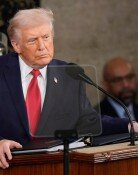Outlook Uncertain as Six-Party Talks End
Outlook Uncertain as Six-Party Talks End
Posted November. 12, 2005 08:44,
The first stage of the fifth round of six-party talks to solve the North Korean nuclear issue ended on November 11 without reaching a specific date for the next meeting.
The delegations of South and North Korea, U.S., China, Japan and Russia held a delegation chief meeting and general meeting at Diaoyutai State Guest House in Beijing, and agreed on a statement declaring that the second stage of the talks would be held at the earliest possible date.
It is very likely that the second phase of the fifth six-party talks will be held somewhere in early 2006.
North Korea Strongly Opposes Setting a Date
During each round of the six-party talks, starting from the first one held in August 2003 to the fourth held this September, the only time that a date for the next session was not determined was after the first round. At the time, North Korea opposed the American request to dispose of nuclear weapons first, and only agreed to set a date and place for the next round as soon as possible.
Hence, many analyze that the reason why a date was not agreed upon for the second phase of the fifth six-party talks is a dispute between North Korea and the U.S.
The North Korean representative at the chief of delegation meeting, strongly opposed setting a date for the next talks, said a Korean government official.
It is reported that the North Korean chief negotiator, Deputy Foreign Minister Kim Kye Gwan, expressed discontent at the chief of delegation meetings, just as he had on November 10, toward American sanctions on Macaos Banco Delta Asia, which is a window for North Korean foreign currency.
It is alleged that North Koreas account with this bank is used to wire Kim Jong Ils slush fund, finance illicit sales of drugs and antiques, and circulate forged dollars and weapon exports.
After the chairmans statement was finalized, the chief of the South Korean delegation, Assistant Secretary of Foreign Affairs and Trade Song Min-soon, answered, Various elements on the negotiation table are all connected, to a question asking: Did the U.S. sanctions on North Korea affect the schedule of future talks? Hence, acknowledging the question in a roundabout way.
North Korea and the U.S. agreed to discuss this issue through bilateral consultations before the next round of talks start.
The busy end-of-year diplomatic schedules of the involved countries also affected the discussion on when to hold the next meeting.
Most of the delegations that participated in the six-party talks will also be attending the APEC summit meeting to be held in Busan next week, as well as the East Asian Summit (EAS) scheduled for December 12-14 in Malaysia.
Hill: February of Next Year is Too Late
The major issue at the fifth round of six-party talks was when North Korea would stop operating tits 5 MW nuclear reactor in Youngbyeon, Pyongbuk.
Although this issue was not discussed in depth at the general meeting, it is reported that at the bilateral discussions between North Korea and the U.S., as well as South and North Korea, in depth discussions on this issue took place.
The chief of the U.S. delegation, Assistant Secretary of State for East Asian and Pacific Affairs Christopher Hill, emphasized that the sooner the better for the halt of the Youngbyeon nuclear reactor.
During a press conference on November 11, Assistant Secretary of Foreign Affairs and Trade Song said, Stopping the operation of the Youngbyeon reactor, the most visible sign of North Koreas nuclear activities, can be a symbolic measure, and measures (compensation) that match it, should follow.
The results of this round were that all the countries agreed temporarily to implement the joint statement of the fourth six-party talks by dividing the issue of de-nuclearization of the Korean Peninsula (North Korea renouncing its nukes), economic and energy aid to North Korea, and normalization of relations between related countries, such as North Korea with the U.S. and Japan.
On the question of the date for the next talks, Assistant Secretary Hill answered, The diplomatic schedules of the related parties are full in November and December, and February is too late.
Myoung-Gun Lee gun43@donga.com






![‘부화방탕 대명사’ 북한 2인자 최룡해의 퇴장 [주성하의 ‘北토크’]](https://dimg.donga.com/c/138/175/90/1/wps/NEWS/IMAGE/2026/02/27/133414028.1.jpg)
